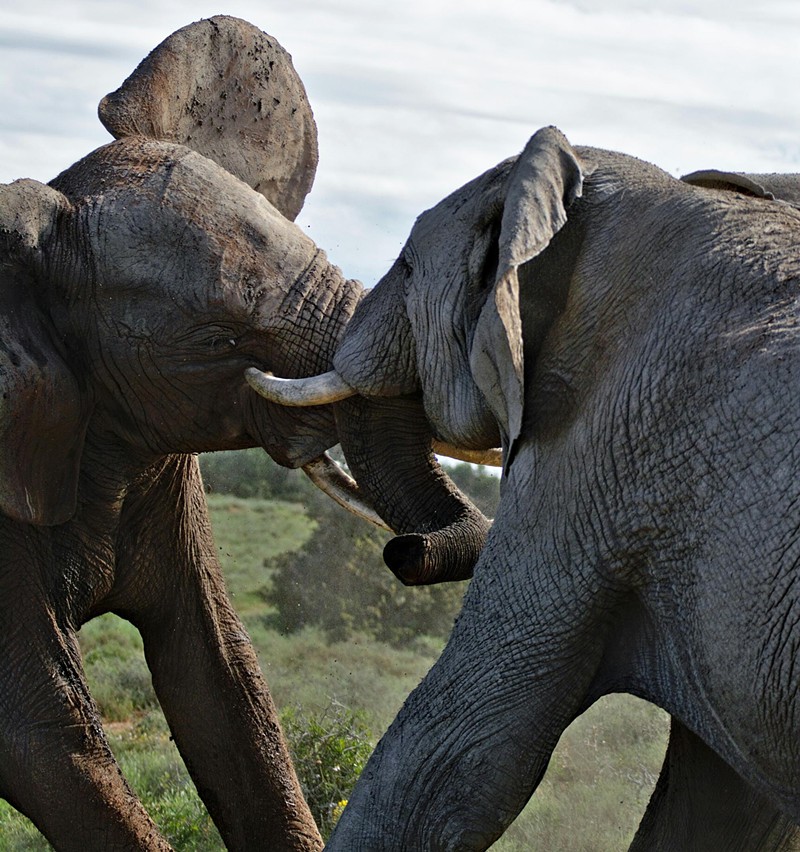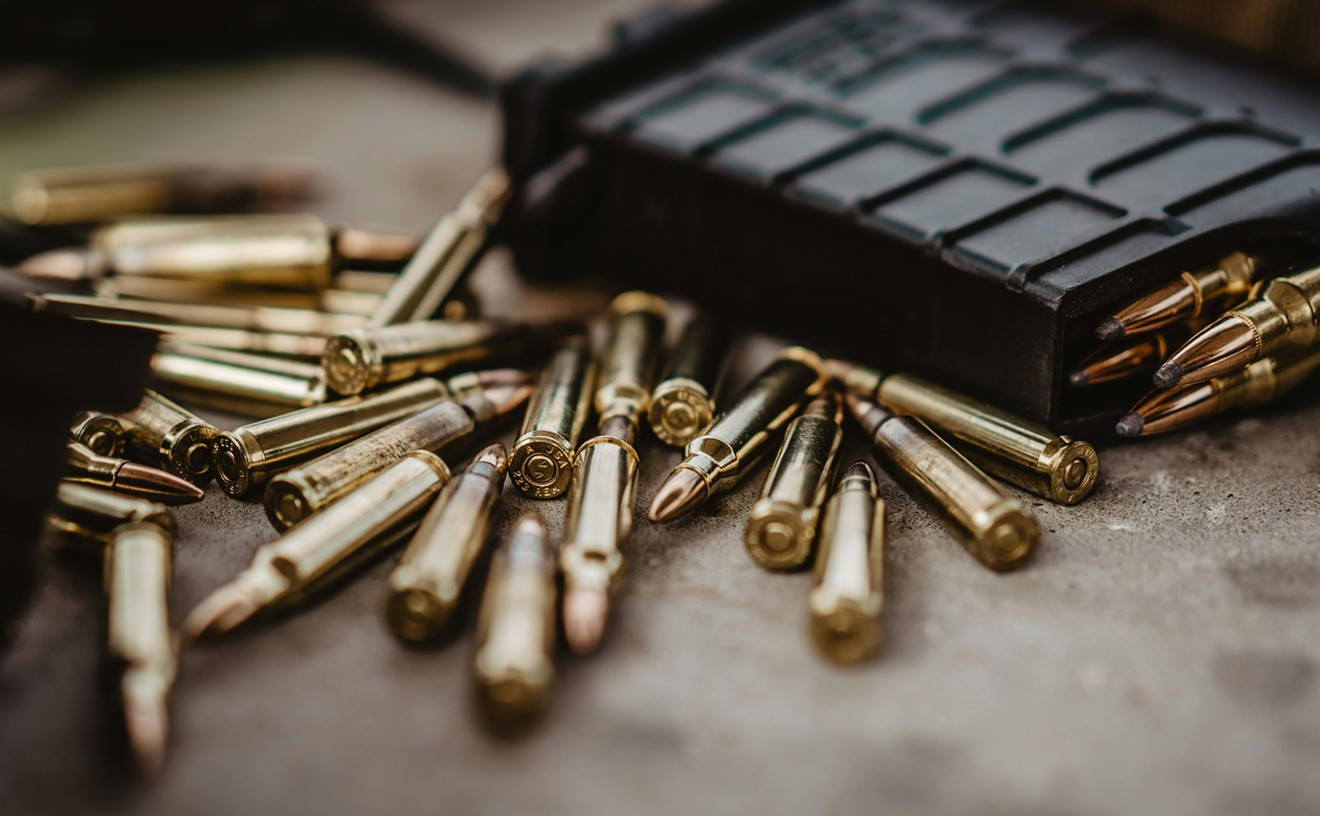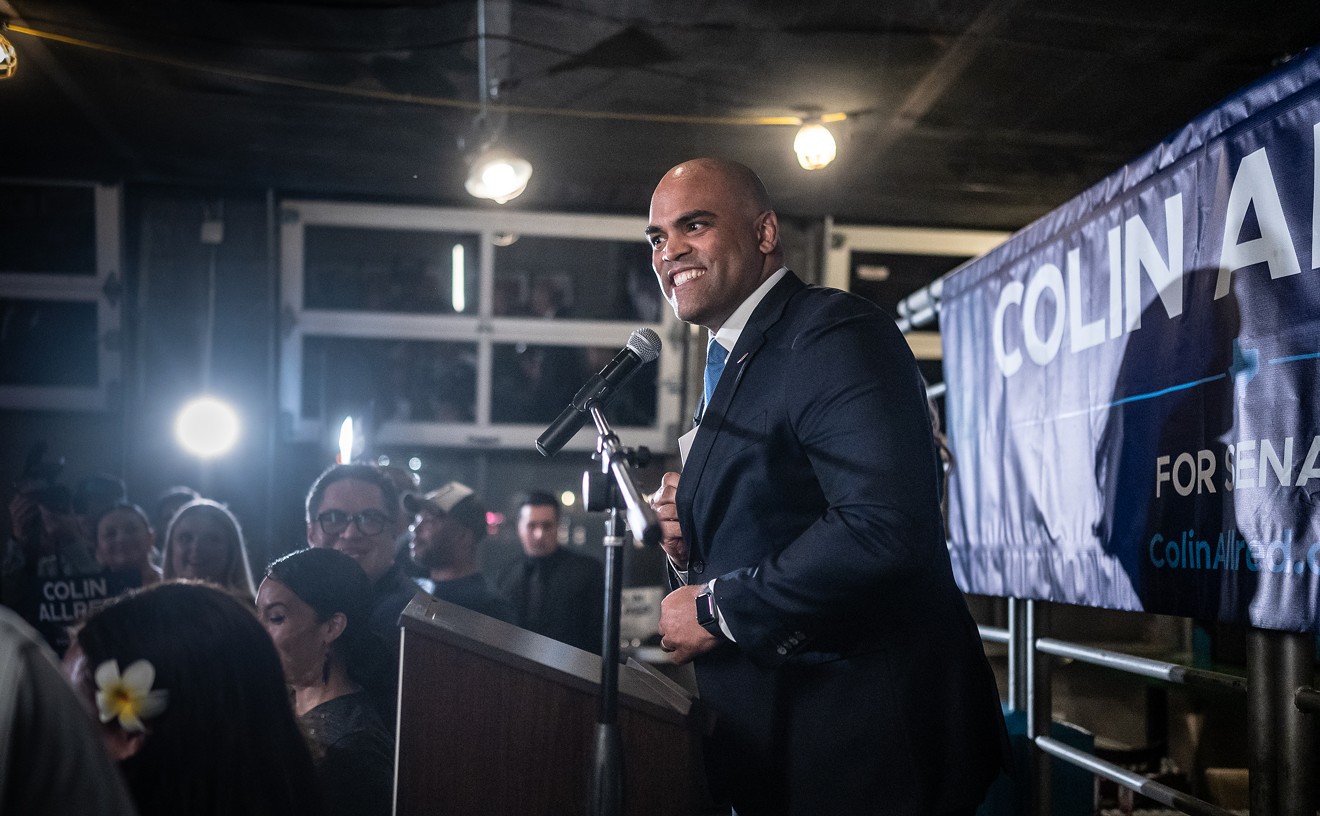“Did you vote for the most pro-Muslim session in Texas history?” it asked. “Jeff Leach did.” Reading those words, Phillips thought of 2016, when, shortly after Election Day, letters distributed in a McKinney neighborhood declared, “We need to get rid of Muslims, Indians, Blacks and Jews.”
Next, Phillips’ mind turned to the fundraising letter Governor Greg Abbott sent one day before the El Paso shooting. Democrats and immigrants were attempting to “transform” Texas, the letter read; it was time to “DEFEND” the state.
For Phillips, the list goes on — all the way back to the Klan’s voter intimidation tactics at the beginning of the 20th century. He says “the grapes of bigoted wrath have been cultivated” in Texas, and even though the author of White Metropolis has made a career of tracing the history of racism in Texas, he is surprised at the blatant hatred he is now seeing in the state’s politics.
“There’s a meanness and an edge to Texas politics that I don’t think has been there since the days of integration,” he says. “It’s surprised me how mean it’s gotten.”
The mailer criticizing Republican lawmaker Jeff Leach comes courtesy of the Texas Family Project, a dark money organization attempting to influence this season’s Republican primaries. The organization has also sent text blasts accusing some Republican legislators of voting in favor of funding that would help Texans transition genders. (This is a lie.)
In a Republican primary awash with mountains of cash, these tactics are some of the most odious examples of the ongoing civil war in the Texas GOP. Billionaires are using groups like the Texas Family Project to attack candidates or officeholders deemed insufficiently conservative, disloyal to the party or both. Governor Abbott and Attorney General Ken Paxton are not up for re-election, but they’ve been stoking these divisions by endorsing and helping to fund many of their current colleagues’ primary opponents. Sometimes Abbott and Paxton back the same candidate; other times they don’t.
This is the result of twin crises in the Texas GOP.
In May 2023, the Texas House impeached Ken Paxton (he was acquitted by the Senate roughly four months later). Then, at the end of the year, 21 Republicans — mostly from rural districts — voted against the inclusion of school vouchers in an education bill, effectively ending, at least temporarily, the governor’s long-running endeavor to bring vouchers to Texas. (He has vowed to keep trying.)
Paxton and Abbott have since gone on the warpath, throwing their support behind politicians eager to replace lawmakers the governor and attorney general once backed. Jeff Leach, once a Paxton protege, voted to impeach the AG last May, thus earning him the ire of both his old friend (“I have loved Ken Paxton for a long time,” Leach said in a speech before his impeachment vote) as well as organizations like the Texas Family Project. The organization did not respond to any attempts to contact it, nor did Jeff Leach.
“There’s a meanness and an edge to Texas politics that I don’t think has been there since the days of integration.” – Dr. Michael Phillips, University of North Texas
tweet this
Gov. Abbott still supports Leach, but he has pulled his support for Nacogdoches Rep. Travis Clardy, a vocal opponent of school vouchers. In a political ad purporting to be a cease and desist letter, Abbott’s office demanded Clardy remove mention of the governor’s past endorsement from his website. Abbott has also repeatedly visited Nacogdoches to campaign for Clardy’s opponent, Joanne Shofner.
“You deserve to have a state representative that’s working with your governor, not working against your governor,” the governor said in his most recent visit.
According to Josh Edwards, managing editor of the Nacogdoches paper The Daily Sentinel, Abbott’s reversal on Clardy hasn’t sat well with many of the city’s Republican voters — particularly because it appears to be all about revenge. The Sentinel previously endorsed Abbott for Governor, and in a recent op-ed, the paper bluntly stated,” We were wrong.”
“This election cycle,” it reads, “[Abbott] wants to buy the votes of rural Texans with a campaign of lies financed by billionaires from out of state, and he’s confident we’re dumb enough to believe him.”
Edwards and his team aren’t alone in their distaste for vengeance-fueled politics.
Kathleen Thompson, the executive director of Progress Texas, a left-leaning group, says the voters she engages with — including Republicans and Independents — want to talk about issues like the high cost of healthcare. When they witness the “pettiness” of the state’s current leadership, she says, they’re left wondering who is looking out for Texans.
“It’s like the ‘R’ doesn’t even stand for ‘Republican’ anymore,” she says. “It stands for ‘revenge.’”
And the in-fighting begs an important question: What comes next?
Some people, including longtime strategists in Texas politics, believe the divisions within the GOP could yield some positive reform. Anthony Gutierrez, the executive director of the nonpartisan voting rights group Common Cause Texas, is one of those people.
He says his organization will be engaging primary winners on topics like campaign finance reform, which is “really difficult to get done,” he admits. Common Cause Texas is optimistic some conservatives will be conducive to reform discussions if they survive bruising primaries with opponents flush with millions in campaign donations from outside Texas.
Last summer, a pro-Paxton PAC donated $3 million to Lt. Gov. Dan Patrick — who was presiding over Paxton’s impeachment trial at the time. Shortly after, Governor Abbott set a record when he received a $6 million donation from Pennsylvania billionaire Jeff Yass, a fellow proponent of school vouchers. Abbott has since spent roughly $6 million in campaign contributions for opponents running to replace some of the lawmakers who voted against vouchers in November.
In comparison, the state of Texas spent about $4 million for a voter information campaign, which is part of the reason Gutierrez’s organization spends so much time educating voters on the registration process.
“It’s hard to register and it’s hard to vote in Texas, and all of these districts have been drawn with laser precision to only be competitive in primaries,” he says. “If the only voters that matter are the primary voters, then that’s obviously going to be who the candidates target with their message. And that inevitably is going to produce more extreme candidates.”
For instance, this primary season has no shortage of election deniers, and extremism has already threaded its way into the current legislature. Late last year, Texas GOP leaders voted against barring their members from associating with Nazi sympathizers and Holocaust deniers. Further, Gutierrez isn’t the only one who thinks fissures created by such extremes could lead to significant change in laws or leadership.
“If a political party is more focused on internal divisions than a general election, it can have an impact,” says Cal Jillson, a political science professor at SMU. “Historically, internal divisions in the dominant party open the door for a significant challenge.”
He cites the 1950s and 1960s, when Texas Democrats were quarreling with one another and “failed to see the Republicans sneaking up on them.”
For this reason, he says candidates like Senate hopeful Colin Allred stand a chance. Others agree.
“The far right is now alienating the urban money in Dallas, Houston and San Antonio, which is real estate money and car dealership money,” says Jeremi Suri, a historian at the University of Texas at Austin. “The Paxton impeachment case really upset what I’d call ‘thinking Republicans,’ and Collin Allred might be able to get some of their votes. He’s not seen as a ‘crazy progressive.’”
Still, Suri and Jillson stop short of predicting major gains for the Democrats in the general elections that will follow these primaries; a lot can happen between now and then, Jillson notes. Instead, the professor predicts a “choppy” outcome: Some incumbents will hold off their intraparty primary challengers, while others will fall.
Brandon Rottinghaus, a political scientist at the University of Houston, has a similar perspective. For starters, he is unconvinced the cascade of billionaire money will cause Republicans en masse to advocate for campaign finance reform.
“It’s possible,” he notes, “but it strikes me as a longshot. Most Republicans are comfortable with the current system, even if on occasion there’s a well-funded opponent running against them.”
But like Jillson, Rottinghaus says there is indeed precedent for a party losing power by alienating some of its base — not because the base votes for someone else, but because they don’t vote at all.
In the 1970s, he notes, “liberal-leaning Democrats” were unhappy with what they saw as the conservative bent of their party. Many sat out the 1978 election, causing Republicans to win the governor's mansion for the first time since 1869.
Edwards, the editor of the Nacogdoches paper, says it’s possible Republicans opt out of the forthcoming elections, specifically because they feel left behind by leaders like Abbott, who has only recently visited Nacogdoches to stump for a candidate who will support school vouchers.
“If a political party is more focused on internal divisions than a general election, it can have an impact.” – Cal Jillson, Southern Methodist University
tweet this
“Republicans tend to vote for whoever the nominee is,” Edwards says, “but the parts of the state that aren’t growing are the parts that are solidly Republican, and rural Texas voters have been taken for granted. I think the Republican party is going to be at a breaking point before too long. What that final straw is, I don’t know.”
Rottinghaus contends many Republican voters are used to some degree of in-fighting. This year may be worse than ever, but much of the friction can likely be rationalized as simply part of the process.
“All this fighting and efforts to purify what candidates say and how they might legislate in terms of the conservative agenda will make for stronger party discipline in the future,” he says. “That’s something Texas typically hasn’t had.”
The other question mark is Paxton, whose endorsement is seen as a badge of honor by some primary candidates in spite of — or because of — the furor surrounding his impeachment and acquittal.
This primary season will be a Paxton litmus test of sorts; has his influence diminished or will voters rally behind his candidates of choice? As of this writing, one such race has already been decided, albeit narrowly.
In a special election for a deeply conservative district covering Hunt, Hopkins, and Van Zandt counties, Jill Dutton edged the Paxton-endorsed Brent Money by 111 votes.
However, this was just part one; on March 5, Dutton and Money will face off again for a two-year term that would start in January 2025.
“After his impeachment, Ken Paxton was emboldened politically,” Rottinghaus says. “He is trying to make the ‘big three’ [the Governor, Lt. Governor and Speaker] the ‘big four’ by adding his voice to the state leadership. He’s got political purchase with some very conservative and like-minded Republican voters, but it’s not clear that his influence goes much beyond that to primary voters who don’t follow every personal twist and turn in politics.”
Meanwhile, Phillips is concerned about other byproducts of this civil war — namely, worsening extremism.
The Anti-Defamation League (ADL) agrees.
In a study released last year, the ADL highlighted an alarming increase of white supremacists and neo-Nazis, including groups like Patriot Front, who were present at Trump’s Waco rally last year. Trump is a vocal Paxton ally, and after the AG was acquitted, the former president said he “saved” Paxton “from going down at the hands of Democrats and some Republicans.”
Writing in the Texas Tribune, reporter Robert Downen noted that the ADL’s findings follow “years of warnings that extremist groups have been emboldened by the Republican Party and its amplification of things such as the ‘great replacement theory,’ a white supremacist conspiracy theory that claims there is an intentional, Jewish-driven effort to destroy white people through immigration, interracial marriage and the LGBTQ+ community. That conspiracy theory — and corresponding violence — has been bolstered by frequent depictions of immigrants as ‘invaders’ by major figures such as Tucker Carlson and Gov. Greg Abbott.”
Phillips says that many days, he is still hopeful for Texas. As a professor at the University of North Texas, he talks with young voters on a regular basis. He sees firsthand how they are alarmed by racism, as well as the violence claiming the lives of thousands of children in Gaza. And when he talks to these voters, he worries the Democrats are leaving them behind because, in a quest to win, they’re leaning further right, not left.
“The Democrats get excited when these Never Trumpers join the Democratic coalition, but what do these Never Trumpers think about workers’ rights? Affordable healthcare? LGBTQ+ rights? Will this coalition move the center of gravity for the Democratic Party further right? If so, that would be a pyrrhic victory,” Phillips said.
When he was interviewed for this story, the seasoned historian was still thinking about that mailer that criticized Jeff Leach. But he was also thinking about his childhood in North Texas. He grew up in an area he once considered a “sleepy suburb.” Now, it’s “an epicenter of hate.”
“When I was a kid, I would watch shows like ‘The Jetsons,’” he says. “I thought we’d be flying in cars by now. But instead, we’re banning books and rewriting history.”











